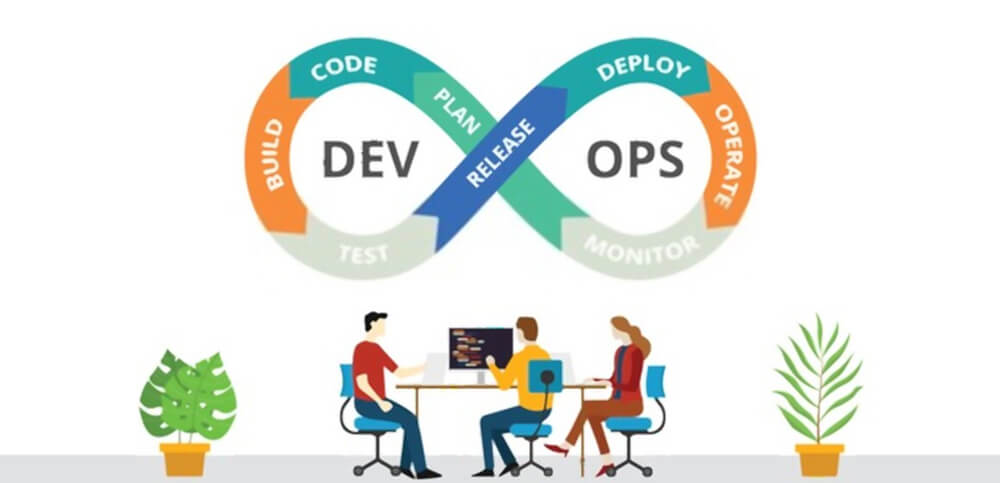How DevOps Methodology Speeds Up the Software Development Process?
Table Of Content
Published Date :
26 May 2023
The process of software development is complex and time-consuming, necessitating close coordination and cooperation between the development, testing, and operations teams. That’s why, many teams use the popular DevOps paradigm to speed up software development by optimizing automation and collaboration.
DevOps has gained popularity in the software development sector in recent years. However, what exactly is DevOps and how can it help your business? We will examine the fundamentals of the DevOps technique and how it might expedite the process of developing software in this blog post.
What’s DevOps Methodology?

DevOps is a software development methodology that combines the techniques of development (Dev) and operations (Ops) to increase the efficiency of product delivery. Its main objective is to break down barriers between development and operations teams to promote continuous delivery and shorten time to market.
Collaboration, communication, and automation are key components of DevOps that are applied throughout the custom software development life cycle. The methodology aims at developing and nurturing a product mindset rather than project mindset. It means, each team and individuals should understand the importance of their individual deliveries that are ultimately combined to take the form of a cohesive project.
Why is DevOps so important?
Conventionally, silos between the development, testing, and operations teams were a hallmark of the software development process. This compartmentalized method can cause delays, mistakes, and inefficiencies, which can ultimately lower the quality of the end product. By dismantling the silos and fostering collaboration across the many teams involved in the development, the DevOps methodology tackles these problems.
Let’s look at a key finding of a Harvard Business Review Analytics Services study that involved 654 respondents. According to the study, 86% of the respondents saw the importance of expedited development and delivery of new software applications. Yet, only 10% had confidence that their company was good at delivering software quickly. Details in the report help us understand how DevOps can solve all the major problems related to development and deployment that IT teams are facing today. And it’s just one of the many reports and surveys highlighting the significance of DevOps today.
How Does DevOps Methodology Speed up Software Development?

The following are some of the key ways DevOps expedites software development, and consequently, product launch:
Faster Time to Market

The DevOps paradigm automates a lot of the software development processes, which reduces time to market. Software can be deployed, tested, and released more quickly and frequently by automating these processes. The ability of organizations to react swiftly to shifting market circumstances and client demands eventually results in a competitive advantage.
Increased Collaboration
Collaboration between development, testing, and operations teams is a key component of the DevOps process. So, it’s expected that everyone participates at the development stage, and communication is encouraged at all stages. As a result, the development process comes to an end more quickly and effectively because there are fewer mistakes and misunderstandings between the team members.
Continuous Deployment and Continuous Integration
One of the most important aspects of the DevOps technique is continuous integration and deployment (CI/CD). In this, code is created, tested, and released in manageable chunks, enabling quicker feedback and corrections. This reduces the possibility of faults in the end product by enabling developers to find and fix bugs early in the development process
Testing Automation

Another essential element of the DevOps process is automated testing. Using automated testing tools, developers may test their code fast and effectively, discovering problems and errors before they make their way into the launch-ready product. This shortens the time required for manual testing and frees up developers' time to concentrate on writing code, expediting the development process.
Constant Monitoring
DevOps methodology emphasizes on continuous monitoring of software in production. This translates into faster resolution times and less client disruptions since developers and operations teams can immediately detect and address issues as they arise.
Increased Customer Satisfaction and Quality
Developers can raise the quality of the product by routinely testing code and taking user feedback into account. Less defects and problems are produced as a result, which cuts down on the time needed for support and maintenance. Additionally, it leads to increased customer satisfaction and lower customer retention costs.
Also Read: Why Microsoft.Net Is The Most Preferred Framework For Web App Development
DevOps Best Practices

In order to speed-up software development and improve team cooperation, DevOps brings together the development and operations teams. It's a strategy that supports continuous delivery and lifecycle automation for software development.
The following are a few DevOps best practices that any team looking to adopt the DevOps methodology should adopt:
IaC: Infrastructure as Code

The process of controlling and provisioning infrastructure through code is known as infrastructure as code (IaC). This process makes it possible for teams to automate the deployment of infrastructure, which saves time and effort while setting up and maintaining the infrastructure. Developers may build and manage infrastructure with IaC by writing code that is simple in terms of version control, testing, and deployment.
Continuous Feedback and Monitoring
DevOps includes the key practice of continuous monitoring and feedback. It involves monitoring the software used in production to detect problems and then sharing adequate feedback with the development team. This procedure enables the team to identify problems early and address them promptly, which enhances the availability and dependability of the product.
Communication and Cooperation
In the DevOps approach, collaboration and communication are essential practices. It entails creating an environment where development, operations, and other teams work together and communicate. The technique facilitates knowledge exchange, enhances collaboration, and breaks down silos. It makes it possible for teams to collaborate and produce better software more quickly.
Also Read: SaaS based Workflow automation Solution for Service Based Industry
Bottom Line
When development and operations work hand-in-hand, it’s a recipe for any software’s success. That’s why DevOps is so helpful. It can totally transform your software and meet market demands if properly implemented. Thus, modern IT firms should use DevOps to build high-quality products and bridge the gap between developers and operations professionals. If you don't invest in it today, it may cost you more than what you're trying to prevent.

Dinesh Thakur
21+ years of IT software development experience in different domains like Business Automation, Healthcare, Retail, Workflow automation, Transportation and logistics, Compliance, Risk Mitigation, POS, etc. Hands-on experience in dealing with overseas clients and providing them with an apt solution to their business needs.
Recent Posts

A strategic overview of how mining-focused project management software improves cost control, resource planning, visibility, and executive decision-making across complex, multi-site mining operations globally today.

From basic monitoring to enterprise-wide control, energy management system costs depend on your needs. Here’s what influences pricing.

The cost to develop a Transportation Management System (TMS) varies widely, from basic apps at $4,000 - $40,000 for an MVP, to complex, enterprise-level platforms costing $100,000 - $800,000+.
 Doha Exhibition and Convention Center (DECC)
Doha Exhibition and Convention Center (DECC)